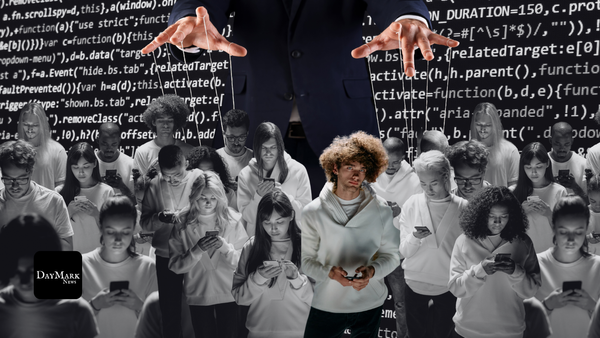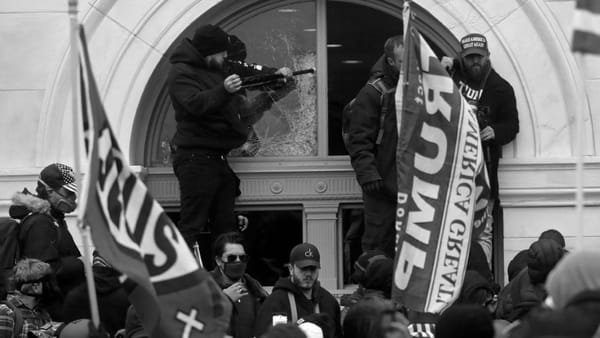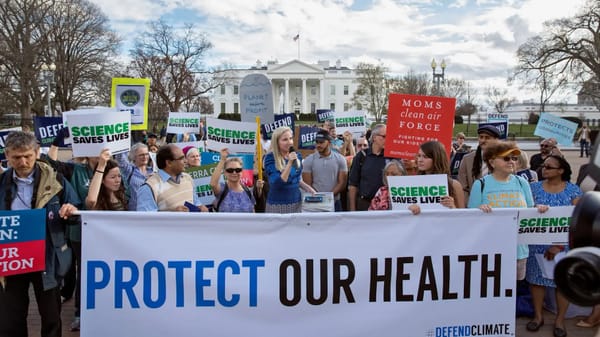The United States Was Not Founded as a Christian Nation: Setting the Record Straight for Oklahoma

When a high school teacher in Oklahoma recently played a video sent by Secretary of Education Ryan Walters, students were met with a bold claim: the United States was founded as a Christian nation, with the Bible meant to guide governance and education. The video urged students to embrace Christianity in the classroom—a repeated message by Walters. This narrative, while familiar and comforting to some, is historically inaccurate.
This claim distorts the intentions of the Founding Fathers and misrepresents the foundational principles of American democracy. Let’s examine the evidence.
The Founding Fathers’ Intentions: Secularism and Religious Freedom
The framers of the U.S. Constitution deliberately avoided mixing religion and government. Religion is mentioned only once in the Constitution, and that is to prohibit it: “No religious Test shall ever be required as a Qualification to any Office or public Trust under the United States” (Article VI). This was a revolutionary stance, a response to the state religions that had created centuries of conflict in Europe.
Thomas Jefferson famously described the First Amendment’s Establishment Clause as building “a wall of separation between Church & State” in his 1802 letter to the Danbury Baptists. Jefferson also authored the Virginia Statute for Religious Freedom, declaring, “Our civil rights have no dependence on our religious opinions any more than our opinions in physics or geometry.” Jefferson believed religion should remain a personal matter, separate from government.
James Madison, known as the “Father of the Constitution,” shared Jefferson’s views. In his 1785 Memorial and Remonstrance Against Religious Assessments, Madison argued against a proposal to fund Christian religious instruction, stating, “The religion then of every man must be left to the conviction and conscience of every man.” It is unlikely Madison would support a government official endorsing Christianity in public schools.
Christianity in the Classroom: Legal and Ethical Concerns
Secretary Walters’ advocacy for Christian teachings in public schools not only misinterprets history but also violates constitutional principles. The Supreme Court has addressed this issue in landmark cases like Engel v. Vitale (1962) and Abington School District v. Schempp (1963), which prohibited state-sponsored prayer and Bible readings in public schools under the Establishment Clause.
Public schools today reflect America’s diversity, serving students from various religious and non-religious backgrounds. Imposing a Christian narrative risks alienating students who already feel marginalized. For instance, a Muslim parent in Oklahoma City expressed concern that such policies make their child feel unwelcome in the classroom. This is an unnecessary and divisive outcome in an educational setting.
A Nation of Pluralism, Not Theocracy
The notion that the United States was founded as a Christian nation often relies on selective quotes or myths. For example, John Adams signed the 1797 Treaty of Tripoli, which states, “The Government of the United States of America is not, in any sense, founded on the Christian religion.” This treaty, unanimously ratified by the Senate, contradicts claims of Christian nationalism.
Many Founding Fathers were influenced by Enlightenment ideals, emphasizing reason and liberty over religious dogma. Benjamin Franklin valued moral behavior over orthodoxy, while Thomas Paine criticized organized religion in The Age of Reason. Even George Washington avoided aligning government with any specific faith, recognizing the importance of religious diversity.
The Dangers of Misinformation
Misinformation like Walters’ video is far from harmless. It shapes public opinion, informs divisive policies, and pressures educators to choose between historical accuracy and professional repercussions. When public officials elevate one faith over others, they erode the freedoms the Founding Fathers fought to secure.
Preserving the Legacy of Religious Freedom
America’s true legacy is religious freedom, not religious imposition. As Madison warned, liberty requires protecting every individual’s right to their own convictions. The United States was designed as a republic where people of all beliefs—or none—could coexist peacefully.
In today’s polarized climate, revisiting the wisdom of the Founding Fathers is essential. They envisioned a nation that celebrated pluralism, not theocracy. By upholding their vision, we protect the freedoms that define America—not just for some, but for all.
Attributions and Sources
- Jefferson’s letter to the Danbury Baptists: Library of Congress
- Virginia Statute for Religious Freedom: Virginia General Assembly records
- Madison’s Memorial and Remonstrance Against Religious Assessments: U.S. National Archives
- Treaty of Tripoli: U.S. Senate Records
- Supreme Court cases (Engel v. Vitale, Abington School District v. Schempp): Legal Information Institute, Cornell Law School
- Quotes from Oklahoma families: Local news reports and interviews (source anonymized for privacy).
At DayMark News, we are committed to exposing the rise of authoritarianism and its threat to democracy. In a time when disinformation spreads like wildfire and democratic institutions face relentless attacks, we need your support to keep the fight alive.
Investigative journalism is our weapon against authoritarian ideologies. We delve deep to uncover the truths others would rather keep hidden, while providing actionable resources to empower individuals like you to defend our democracy.
We believe in transparency, integrity, and the power of a well-informed public. But maintaining a platform dedicated to fearless reporting and mobilization requires resources. We refuse to bow to corporate interests or compromise our mission. That's why we turn to you — our community.
Every donation, big or small, helps us continue our work. With your support, we can produce the in-depth analyses, breaking news, and educational tools needed to resist the rise of extremist movements and protect democratic values for future generations.
This fight belongs to all of us. Together, we can ensure that democracy not only survives but thrives. Please consider making a contribution today to keep DayMark News strong and independent.
Donate Now: Because Democracy Can't Defend Itself.





